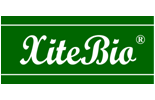Soil Testing first became available as a tool for farmers in the mid-twentieth century (1). But a recent survey found that only 30 per cent of respondents test their soil each year (2). Soil testing can also help make biologicals more efficient. As we shall see in this week’s edition of Growing Possibilities nutrient use efficiency and on farm profitability can be improved by combining soil testing with the targeted use of P-solubilizing ag-biologicals.
Soil testing for fertility is key to the 4R’s of nutrient stewardship Right Source, Right Time, Right Rate, Right Place. But are the 4R’s just a buzzword from industry or have they been proven in the real world to enhance sustainability while maintaining profitability?
Canada’s high yielding canola growers use soil testing as part of their crop management strategy. The Fertilizer Use Survey by Fertilizer Canada “found that 50.6 per cent of high-yield growers soil test for nitrogen every year. That compares to 29.5 per cent for moderate-yield farmers and 24.4 per cent for low-yield growers (3).”
Of course, testing for nitrogen is important but Fertilizer Canada also recommends testing for Phosphorus (P). And as we shall see testing for P is where farmers can find an opportunity to strategically apply ag-biological technology to conserve fertilizer and boost ROI. “The most important tool in phosphorus management for crops is a soil test. Soil testing reveals soil pH, the soil phosphorus level, and determines the recommended application amount of phosphorus for the crop to be grown (4),” says Douglas Beegle, Ph.D.
Testing for pH is important because P can become chemically immobile in the soil and need to be solubilized for uptake by the plant (5). Based on the amount of available P farmers can decide how much P to apply each year to make sure P levels do not get too high or too low.
P-solubilizing ag-biologicals can play a role in helping farmers to get the most available P. Products like XiteBio® Yield+ or XiteBio® Tuber+ are perfect for farmers who have high P levels but also have a soil pH that makes the P unavailable to the plant. These products contain a bacteria called Bacillus firmus that produces an enzyme that raises or lowers the pH of the soil allowing the P to become bioavailable to the plant. This means that farmers only need to apply enough P to keep the P reserve in the soil stable year to year rather than applying excess P to ensure there is enough available to the plant. The application of excess P can cause P buildup in the soil and lead to runoff which is both harmful to the environment as well as farmer’s bottom line.
At XiteBio we have created a series of videos on P-solubilization to help explain this phenomenon. They can be viewed by following this link to our brand-new Vlog page.
References
- https://www.farmprogress.com/soil-health/birth-and-evolution-of-soil-testing-what-s-next-
- https://www.agriculture.com/crops/soil-health/how-frequently-do-farmers-soil-test#:~:text=Regardless%20of%20testing%20crop%20or,at%20least%20once%20per%20year.
- https://canoladigest.ca/september-2020/simple-4r-tips-to-improve-profitability/
- https://extension.psu.edu/managing-phosphorus-for-crop-production
- https://xitebio.ca/what-is-p-solubilization/


